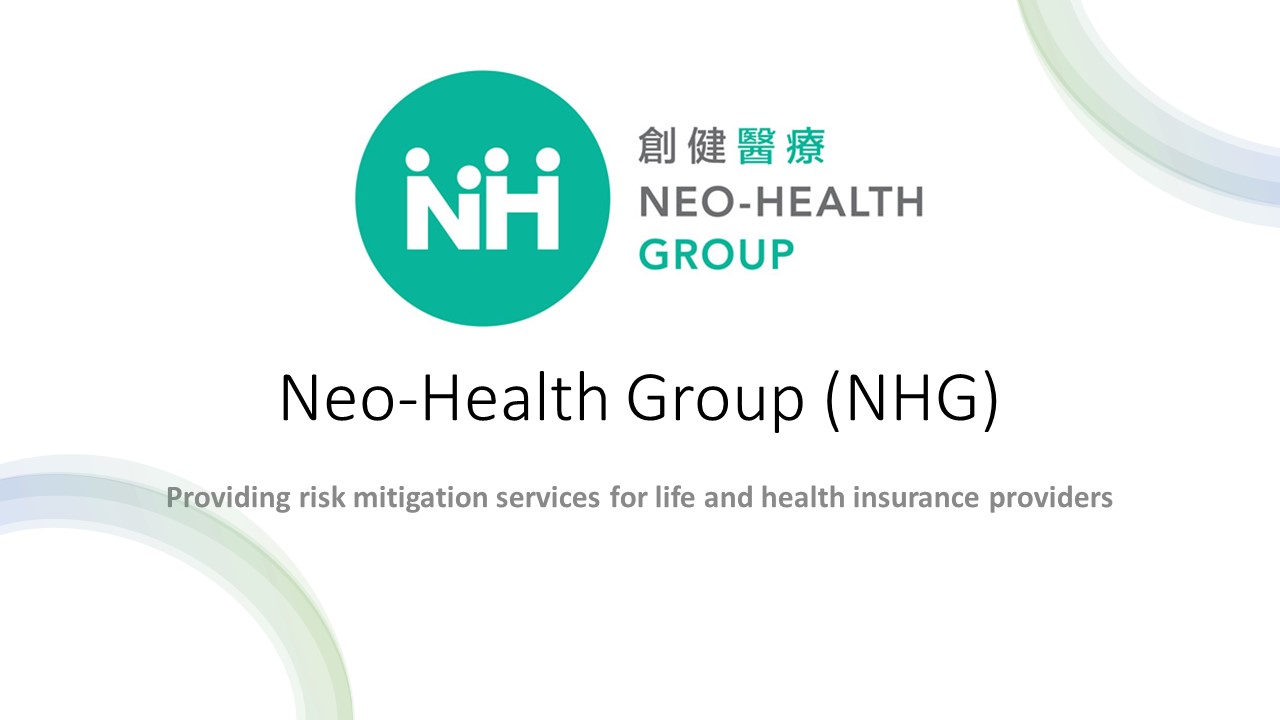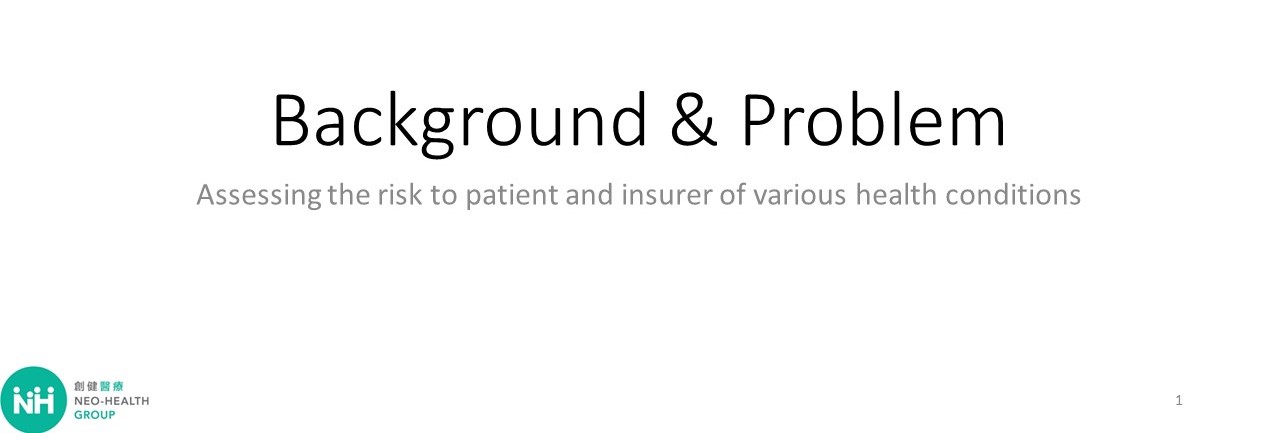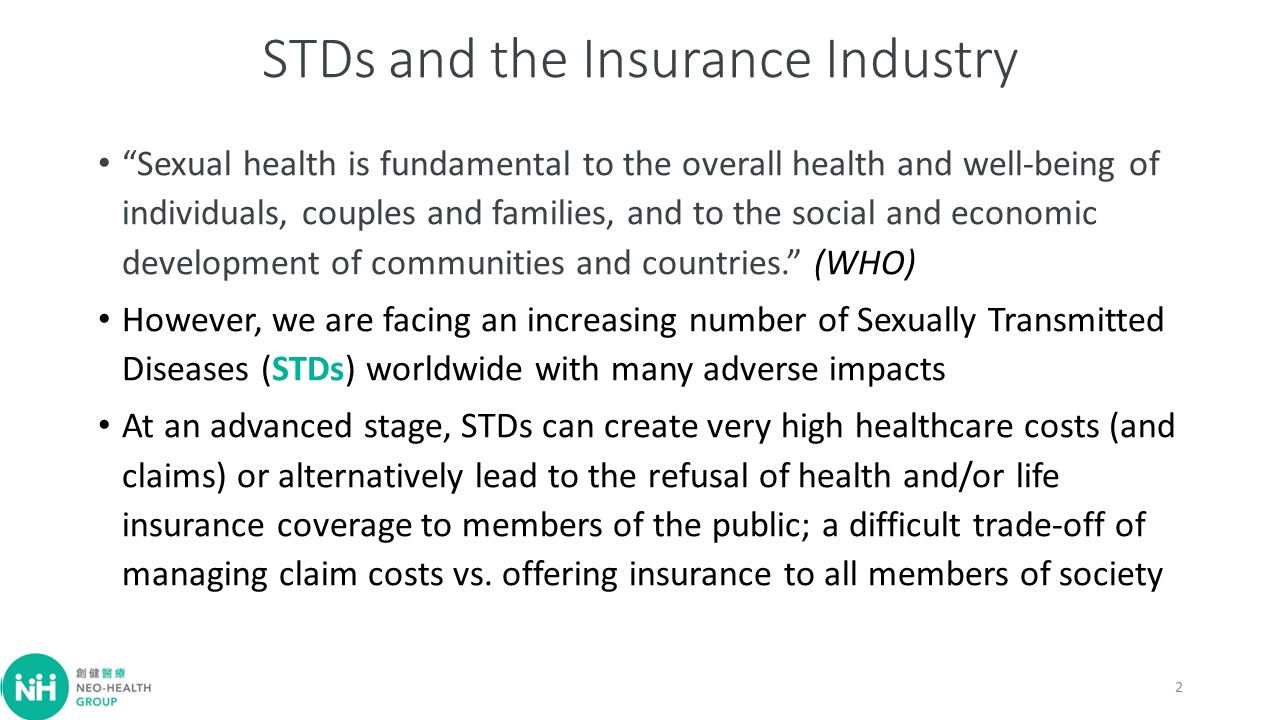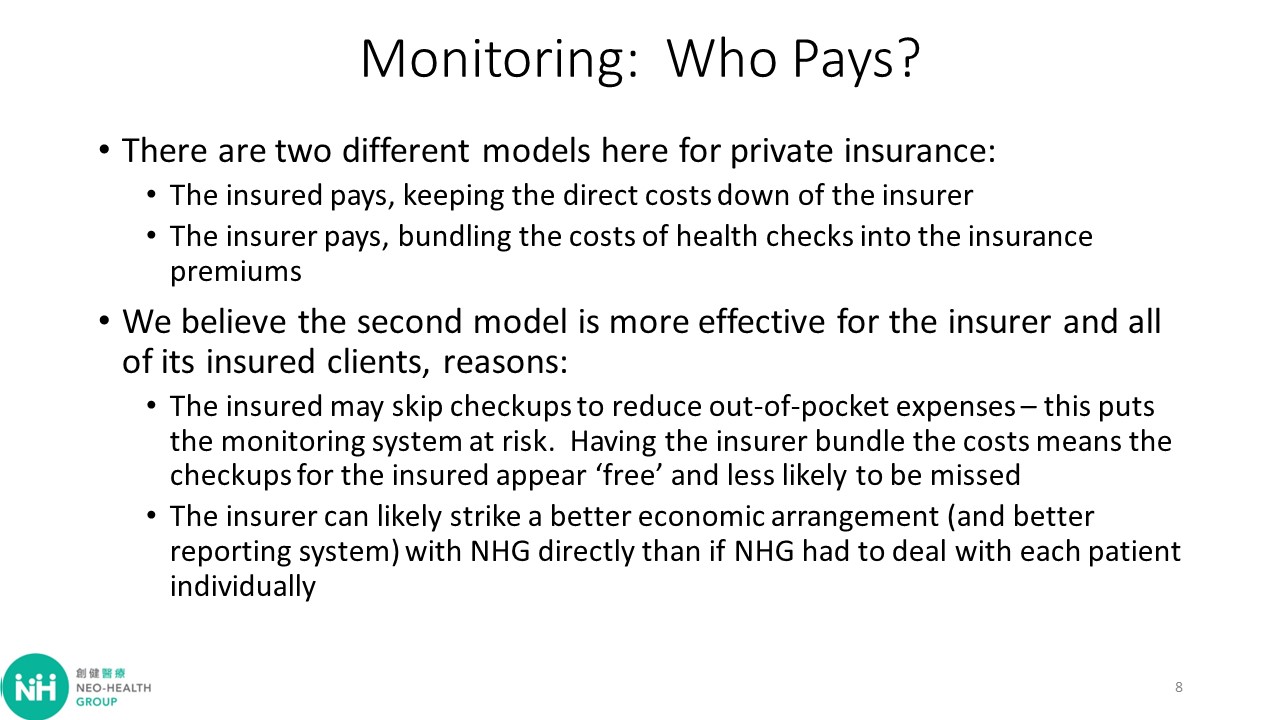Welcome to this monthly series with Dr Francois Fong of Neo-Health Group in Hong Kong, which deals with issues related to sexual health. We hope it will contribute to public education about sexual health and help viewers, both women and men, learn about prevention and treatment for the benefit of their own health.
Today’s topic is how NHG can provide risk mitigation services to insurance providers.
Script of Interview
Interviewee Dr. Francois Fong (FF)
Position Managing Director
Company name Neo-Health Group (‘Neo-Health’)
Company website https://www.neohealth.com.hk/
Interviewer John D. Evans, CFA (JE)
Interview conducted on 28 Jan 2023

JE Welcome to our viewers of SEIML Ventures for this monthly series with Dr. Francois Fong of Neo-Health Group in Hong Kong, which deals with issues related to sexual health. We hope it will contribute to public education about sexual health and help viewers, both women and men, learn about prevention and treatment for the benefit of their own health. Today’s topic is something a little bit different, not about a specific medical issue, but rather how Neo-Health Group can provide risk mitigation services to health insurance providers. So, on that note, welcome back Francois.

FF Good to see you again, John.
JE Okay, so this is a little bit of a different topic. So, let’s start off and give a bit of background for the viewers. What is the issue for the health insurance industry with regards to people and sexually transmitted diseases?

FF In general, there’s still a lot of stigma relating to sexually transmitted diseases, especially with insurance companies. A lot of Hong Kong insurance companies or policies, they will have a specific exclusion term about sexually transmitted infection. And so a lot of people will feel also embarrassed when they have sexually related problems. When they see a doctor they often feel embarrassed or even avoid seeing doctors because of their embarrassment.
JE Okay, now let’s get into a very specific case. And tell us a little bit more about the insurance industry, life and health, and how it deals with people with HIV.

FF People living with HIV in the past, they faced a lot of problems, including getting insurance, life insurance or medical insurance. No matter whether it is a life insurance or critical illness, most people living with HIV are excluded by insurance companies. However, there seems to be a little bit of change nowadays, but because of the past, there’s still a lot of concern about people who have HIV, their life expectancy is lower, they have other medical conditions which make them at higher risk. So for medical reasons most policies would exclude people with HIV and same for life insurance.
JE Okay, so now talking more generally, what can be done to increase access to insurance for people with STDs, while at the same time managing the risk for the health insurance or life insurance provider?

FF Things have changed a lot in the last 10 to 20 years, especially for HIV. So as long patients are taking their medications regularly, they receive regular medical checkups, their life expectancy is very similar to people without HIV infections. And the risk or other medical condition is also very similar to people without HIV infections. So nowadays, we starting to see some insurance companies are starting to open up their policy for people living with HIV. So some insurance companies are already are offering life and life insurance for people living in HIV. And also we see some policies actually cover for people with HIV for their treatments. So I think there’s some changes with some insurance companies already. But I think that should be more generalized to cover more people and so that they can have broader cover.
JE So, there’s two separate issues here: there is the inclusion and providing insurance more widely to people with STDs and then, from the insurance company’s perspective, there is the risk management. So what can Neo-Health Group do to assist the insurance companies in providing coverage to sufferers of sexually transmitted diseases?

FF Well, for us directly to patients, we try to provide a more non stigmatizing environment for their sexual problems. And especially for HIV patients, we generally encourage them to receive regular checkups and take their medication regularly. So I think this group of patients, they require special care at that time. So also for insurance companies to ensure they are taking their medication regularly. So that their risk for life and also for other medical illness is lowered or approaching to people not having HIV infections. So I think regular checkup and proper care for them is very important. Rather than excluding them, is to include and providing long term care.


JE Okay, so I can understand how, through regular checkups, and treatment and medication, Neo-Health Group can help the sufferers who have an STD, better manage their circumstance and therefore reduce the risk to the insurance company. But then this this comes as a cost to someone, either the insurance company or the patient. So, who pays for these risk mitigation services? And why should one or the other be paying?

FF Well, I think the cost can be dealt with by the insurance company as it is a calculable risk. So as long as patients who are regularly being follow up and taking their medication, their risk is manageable. So rather than not following them, excluding them, I think now with inclusion policies and for equality it’s important for insurance companies to actually look after all patients no matter what kind of illness they have.
JE So I guess, also, that if it’s being proposed that the insurance company is directly the provider of the services and therefore bearing the cost, they can also build that into their policies, so that it’s not really a direct cost of them. But I suspect, and I’m speculating here, there’s another advantage in that, if the insurance company pays and that cost is already committed to this programme, then the patient is more likely to adhere to it than if they had to self-pay on a regular or a periodic basis. So I would speculate that this is also a more effective way to manage the programme and make sure that the treatment and risk mitigation is ongoing.
FF I agree. It is not uncommon to see HIV patients who are not wanting to review their HIV status to insurance company. And by not letting the new insurance company know, then the insurance company cannot fully assess what kind of risks they’re receiving from having a new client. So I think having an open policy is better than excluding patients with HIV.
JE Okay, my final closing question just sort of off the cuff, in Hong Kong, without mentioning any names of insurance companies, are you starting to see some or many insurance companies provide this cover to people with HIV?
FF Yeah, we have seen a few insurance companies, especially the more global insurance companies with higher premiums, or premium packages, they do cover for HIV treatment. And also for some, they will also provide life policies for patients living with HIV. I think that’s a good change. But I wouldn’t say the proportion of insurance company coverage for HIV is more than half.

JE Okay. But if a few major players are doing it, then that creates a competitive situation that other insurers who are not providing this coverage have to look at otherwise they may get left behind in terms of how the market is moving. So that’s very interesting. So that’s a little bit of a different topic. I appreciate your thoughts, but it’s very, very important because so much of health coverage is through private medical health insurance policies these days. So the interaction between professional clinics like yours, the patients, and the health insurance company, that sort of triangle is really important. So thanks for giving us this update today for as well.
FF You’re welcome, John.
End.

Benny曾在中国金融市场工作,聚焦于固定收益、货币和资产负债管理。 他目前是宁波一家中型私募基金管理公司量利资本的副总裁。 公司的策略包括各种类型的固定收益投资组合管理和可转换债券投资组合管理。 此外,Benny 还为证券公司母基金、企业投资者和高净值个人等专业投资者提供金融投资服务。
Benny 还一直活跃在证券业务的商业领域,管理客户业务发展战略、营销计划和路演,并为中小型银行和其他金融机构开发和提供金融市场培训计划。
Benny 精通普通话、英语和日语。

自 2014 年春从法国攻读研究生回到中国以来,Jina一直致力于电商领域及其在金融、娱乐和汽车行业的应用。 她是一位多功能人才,能说流利的普通话、英语和法语。
Jina 是 SEIML 在外国客户和中国行政机构之间的主要关系经理,曾多次负责与在中国运营的国际公司和管理人员打交道。 因此,她负责管理公司与客户的所有业务流程外包(BPO)活动。
她拥有经济学研究生学位,并完成了特许金融分析师协会(CFA Institute)颁发的投资基础证书,因此具备协助外国公司进行中国市场研究的知识,包括对潜在客户、供应商或其他第三方进行审查。 她在使用中国社交媒体方面也颇有心得。
Jina 精通普通话、英语和法语。

John 职业生涯的前 24 年是在投资银行度过的,先是在多伦多,后来短暂去了纽约和伦敦。 他曾为欧洲、中东和非洲地区的大型基金提供债务资本市场(DCM)、股权资本市场(ECM) 和战略投资咨询。
2004 年,他转入学术界,在英国和中国的大学设计并开设了投资管理硕士课程。 在英国大学就读期间,他还创建并管理着欧洲一家规模较大的金融专业培训机构(该机构是培训公司的合资伙伴)。
2016 年,John 重返行业,与初创企业以及各种平台和生态体系合作,为这些处于早期和中期阶段的公司提供支持。 起初,他在上海地区开展这项业务,但后于 2024 年迁至香港,以便在东南亚地区建立 SEIML 的足迹。 John 还是香港创始人协会(FI)生态体系的董事和 创始人协会东盟金融科技加速器的项目总监。